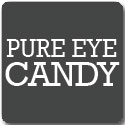Merino is fast becoming one of the most popular fabrics for baby and children's wear, but do we give a second thought to where it has come from, how the animals it is taken from have been treated, and what difference ethical practices make to the quality of wool products that we buy?
Zque is an accreditation program from New Zealand Merino that ensures five key factors are taken into account in producing quality merino products, ensuring sustainability of the merino wool trade, and being ethically responsible at the same time.
Maternity, baby and children's wear companies that have Zque accredition include
Mobea,
Mokopuna,
Zee Zee and
Hey Baby's MarselMe Range. These companies stand by their responsibility to produce a quality product, in an ethical and sustainable manner.

Zque - A new fibre category
The following information was sourced from Zque - www.zque.co.nz
In life there comes a point at which you stand up for something good - Zque does so by representing a new fibre category 'ethical wool'.
Zque fibre combines natural performance wool with an accreditation program that ensures environmental, social and economic sustainability, animal welfare (non-mulesed) and traceability back to the source.
Performance
New Zealand’s unique high country environment and farming systems produce Merino fibre renowned for its range of attributes, which give New Zealand Merino garments their distinctive lightness and smoothness to touch. Zque fibre is sourced specifically to optimise these attributes according to fibre requirements of brand partners to produce ‘fit for purpose’ Merino and thus outstanding processing and product performance.
Superior Whiteness
New Zealand Merino fibre is uniquely bright and white. This provides almost unlimited opportunities for product colour and style. The whiteness is due to shearing Merino sheep just before summer - avoiding the intense summer heat that can cause the fibre to yellow.
Superior Strength
Consistent nutritional quality and intake throughout the year means the fibre from New Zealand Merino sheep is strong along its length. Stronger fibre increases garment durability, reduces the likelihood of pilling, and significantly improves its processing potential.
Low Coefficient of Variation of Fibre Diameter
Consistency of fibre diameter in New Zealand Merino bales offers improved spinning performance. Uniformity within each bale is achieved by careful and professional sorting by New Zealand’s highly skilled wool classers. This ensures that the softness and handle of the final garment are exactly as specified.
Low Vegetable Manner
Vegetable matter (such as seedheads) caught in the fibre, is a significant processing issue. New Zealand Merino is characterised by its very low vegetable matter content (commonly referred to as vm).
Low Levels of Contamination
Dark and medulated (hollow/partially hollow) fibre can limit the potential use of garments - dark fibre can show up in a light coloured garment, and medulated fibre can cause inconsistent colouring in the finishing of a dyed garment. New Zealand Merino fibre is well known in the textile industry as having exceptionally low levels of contamination, largely through careful stock breeding and selection, and highly skilled shearing and wool classing professionals.
Animal Welfare
In New Zealand, Merino sheep graze on pasture in ‘free range’ conditions throughout the year. The free range style of farming system suits both the high country environment (alpine and sub-alpine grassland) and the hardy Merino breed. Merino producers have developed the necessary stockmanship, often over many generations, to ensure the health and welfare of their sheep and that the productive capacity of their farms is maintained or enhanced, rather than degraded, over time.
In New Zealand, the Animal Welfare Act (1999) defines minimum standards that specify the obligations of people who own or are in charge of animals. It also defines best management practices for the provision of an animal’s physical health and behavioural needs.
No Mulesing
Zque Merino fibre is selected from properties that have never mulsed, or that have stopped mulesing sheep supplying Zque Merino fibre.
Environment
Protection of the environment and animal health and welfare results in productive and profitable farming. Merino sheep are farmed in some of the most beautiful alpine and sub alpine grassland areas. To ensure they stay this way for future generations, farmers have developed systems that result in the production of high quality Merino fibre without damage to the environment.
In New Zealand, the Resource Management Act (1991) establishes rules to protect the environment, through;
- Sustainable management of natural and physical resources;
- Governing the use and development of our land, air and water resources; and,
- Managing the environmental effects of human activities.
Responsibility
Social responsibility requires more than just lip service. Zque™ is about acting responsibly and respectfully to promote stability and sustainability throughout the value chain.
The sustainability of farming is closely linked with the social and economic welfare of farmers, farm workers and communities. The majority of New Zealand Merino fibre is produced in the South Island’s high country where farmers and their local communities have developed a distinctive culture of robustness and resilience, while continuing careful stewardship of the land.
The Zque programme encourages these attributes as well as the health and safety of those living, working and visiting Zque accredited farms through the Health and Safety Employment Act (1992) and Employment Relations Act (2000).
The Zque programme also provides an assurance that NZM acts responsibly in its relationship with its supplier base via the stable and sustainable pricing delivered through the unique forward contract system. This ensures continued supply of Merino fibre and creates an environment in which farming families, and communities, can continue to invest in their Merino business and enhance the opportunity for long-term business validity.
Traceability
Zque provides a transparent traceability scheme that allows you to identify and track Zque fibre from the brand to the farm. This ensures the desired fibre quality is maintained, and that product and system integrity is not compromised.
Consistent quality and continued supply are guaranteed through the forward contract system, which defines fibre specifications and ensures growers are committed to the production of ‘fit for purpose’ Merino. These contracts provide price stability at a level that is sustainable for both the purchaser of Zque Merino and the farming businesses by removing price volatility.
Accreditation
Zque is based on encouraging Merino growers to adopt best management practices and to continually refine and improve their performance with respect to fibre quality, animal health and welfare, environmental, economic and social values.
Zque requires accredited growers to meet the standards outlined in the Zque manual and uses an independent (third party) audit process to ensure that these are complied with.
Auditing is undertaken by AsureQuality, an internationally recognised assurance organisation compliant with ISO Guide 65 and ISO 9001 standards, and accredited with the Joint Accreditation System of Australia and New Zealand (JAS-ANZ).
ASURE is a State Owned Enterprise that has been designing, developing and delivering farm assurance with a high level of integrity and consistency since 1994.
For more information, please visit the Zque website.


.jpg)
















